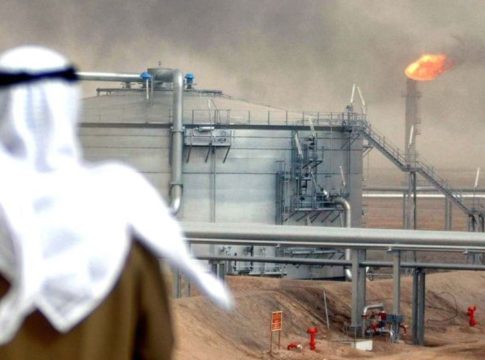Saudi Arabia is considering a plan to phase out subsidies for gasoline and jet fuel in November at the latest, as the world’s biggest oil exporter pushes a programme to curtail spending after a global slump in prices.
The government would boost gasoline to parity with varying international prices under the plan, according to a person with knowledge of the matter. At current levels, this could result in a hike of about 80 percent for octane-91 grade gasoline to about 1.35 riyals per liter (0.36 cents), the person said on condition of anonymity. The government plans to delay increases in other energy prices until early 2018, the person said.
Authorities are expected to make a final decision on the plan in September or October, the person said. The Saudi finance, economy and energy ministries didn’t immediately respond to requests for comment.
Energy-subsidy reform is a key part of Saudi Arabia’s plan to overhaul the economy, along with the sale of stakes in state-owned entities, including the world’s biggest crude exporter known as Saudi Aramco. The kingdom raised fuel prices in December 2015 and announced plans for further increases. Authorities have also announced plans for a cash transfer programme that would start before further subsidy cuts to help Saudis cope with the impact as the economy struggles with the worst slowdown since the global financial crisis.
“It is important for the Saudi government to cut subsidies in order to ease pressures on budget deficit,” Tariq Qaqish, managing director of the asset management division at Mena Corp. Financial Services LLC in Dubai, said by email. “Not only the transportation and logistics sectors will be affected significantly, any company that is involved in production and needs to transfer their end products to consumers will be affected.”
Political Sensitivity
The kingdom’s benchmark Tadawul All Share Index climbed 0.3 percent at 12:57 a.m. in Riyadh on Monday. The transportation index fell 0.7 percent, the most in a month.
Removing energy subsidies is politically sensitive in the six-nation Gulf Cooperation Council, where many nationals have grown accustomed to generous state benefits and handouts. The slump in revenue from oil exports have left governments with few options as they grapple with rising budget deficits.
Saudi Arabia’s budget gap soared to more than 15 percent of economic output in 2015 before authorities unveiled a plan to transform the economy and balance the budget by 2020.
The neighboring United Arab Emirates became the first country in the oil-rich region to remove subsidies on transport fuel when it began linking gasoline and diesel prices to global oil markets in August 2015.
Gasoline and jet fuel would undergo immediate, one-time increases under the Saudi plan, while the government would raise prices of other fuels gradually between 2018 and 2021, the person said.
Diesel, Heavy Fuel
The government may put a ceiling on increases in diesel and heavy fuel oil to limit any negative impact on the economy, as both fuels are used for power generation and industrial activities, the person said. Electricity rates would rise gradually as power providers passed on at least some of the increase in fuel prices, the person said.
Benchmark Brent crude has lost about 2 percent this year and was trading at $55.63 a barrel on Monday at 11:22 a.m. in London.
“The government is taking its first step in removing subsidies for some fuel,” said John Sfakianakis, director of economics research at Gulf Research Center. “And over the long term, the economy will become a more efficient user of energy in general, and gasoline in particular.”


